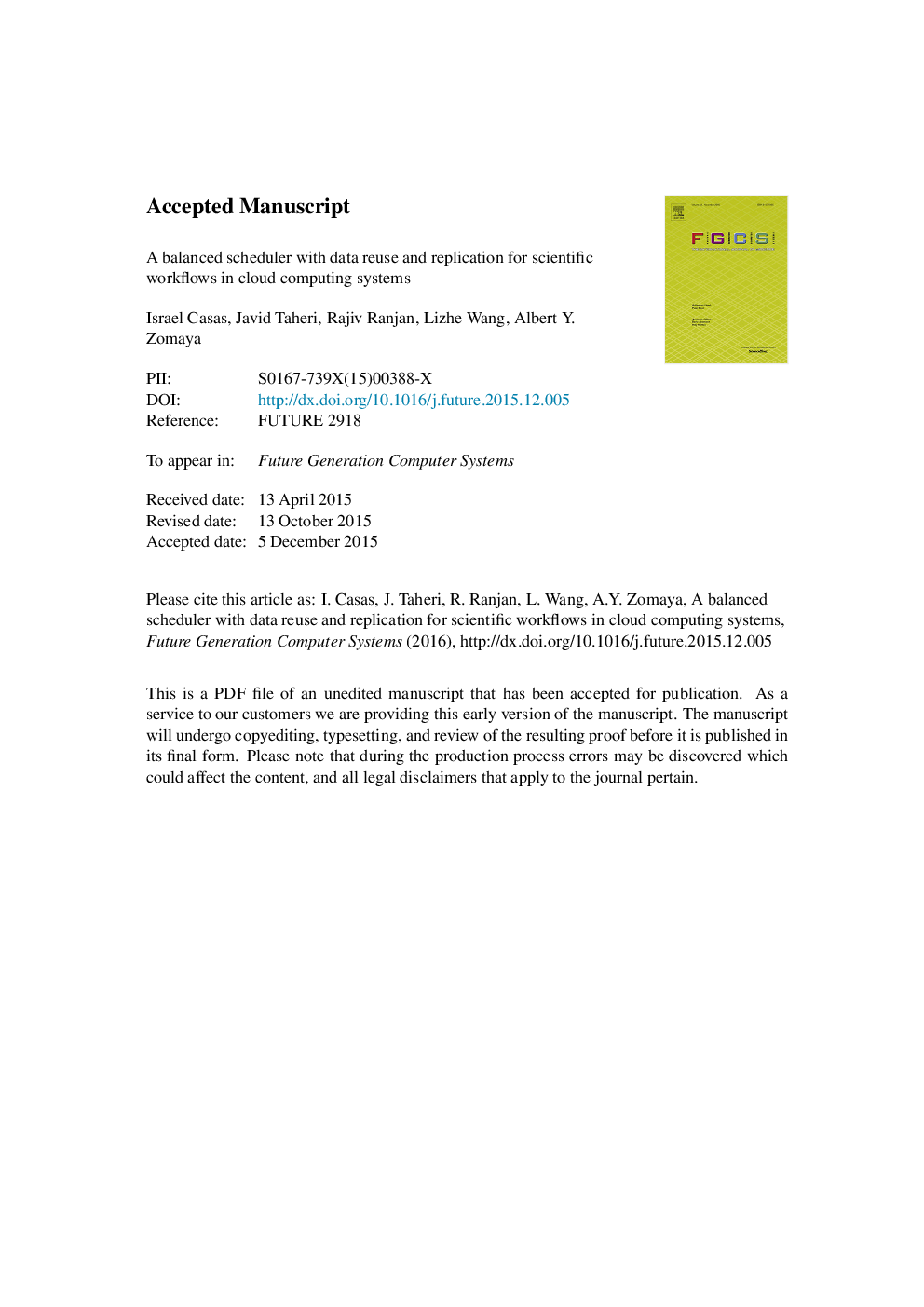| Article ID | Journal | Published Year | Pages | File Type |
|---|---|---|---|---|
| 4950369 | Future Generation Computer Systems | 2017 | 26 Pages |
Abstract
Cloud computing provides substantial opportunities to researchers who demand pay-as-you-go computing systems. Although cloud provider (e.g., Amazon Web Services) and application provider (e.g., biologists, physicists, and online gaming companies) both have specific performance requirements (e.g. application response time), it is the cloud scheduler's responsibility to map the application to underlying cloud resources. This article presents a Balanced and file Reuse-Replication Scheduling (BaRRS) algorithm for cloud computing environments to optimally schedule scientific application workflows. BaRRS splits scientific workflows into multiple sub-workflows to balance system utilization via parallelization. It also exploits data reuse and replication techniques to optimize the amount of data that needs to be transferred among tasks at run-time. BaRRS analyzes the key application features (e.g., task execution times, dependency patterns and file sizes) of scientific workflows for adapting existing data reuse and replication techniques to cloud systems. Further, BaRRS performs a trade-off analysis to select the optimal solution based on two optimization constraints: execution time and monetary cost of running scientific workflows. BaRRS is compared with a state-of-the-art scheduling approach; experiments prove its superior performance. Experiments include four well known scientific workflows with different dependency patterns and data file sizes. Results were promising and also highlighted most critical factors affecting execution of scientific applications on clouds.
Keywords
Related Topics
Physical Sciences and Engineering
Computer Science
Computational Theory and Mathematics
Authors
Israel Casas, Javid Taheri, Rajiv Ranjan, Lizhe Wang, Albert Y. Zomaya,
